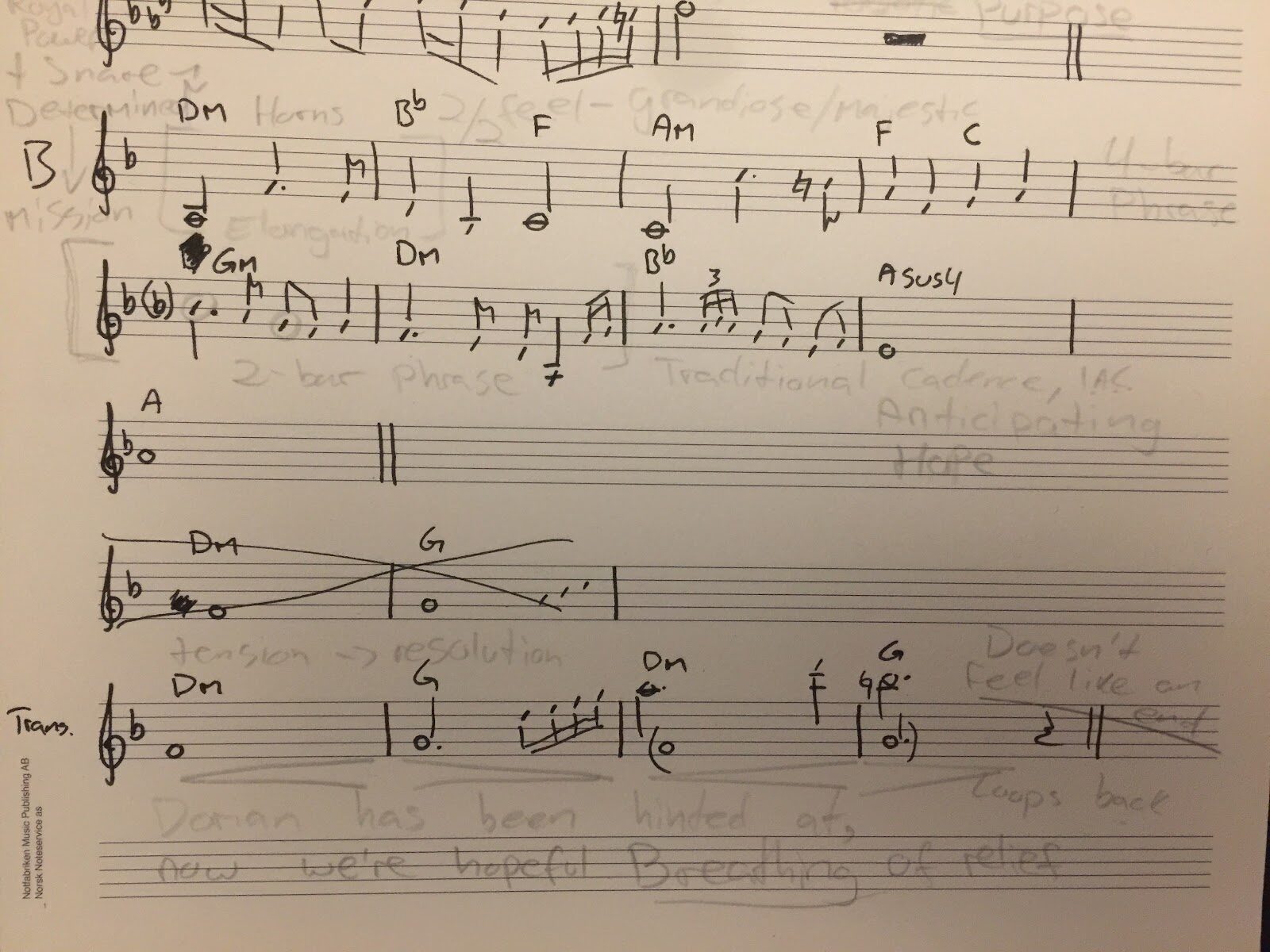
If you are someone who wants to be more mindful of the emotional impact of music you use in your projects, keep reading.
Putting an emotion we’re experiencing into words is difficult, but it’s also worth exploring for any content creator, designer, or marketing executive. The more in tune you are with the emotional implications of the music you listen to, the better the choices you will make. And in a world where music and sound effects are plenty available through libraries, chances are these are decisions you will have to make—particularly if you are part of a low budget production.
The soundtrack of Octopath Traveller, written by Yasunori Nishiki, is one of my favorites of the past few years despite being ridden with clichés. I love the way the musical themes are developed throughout the game, and how tastefully the music follows the story. The particular tune we’ll be discussing is Olberic’s Theme because it is one of the tunes from the soundtrack where I was easily aware of how I felt while listening.
It’s worth mentioning that the composer most likely didn’t consider all of the things I’m writing about here when composing music for Octopath. Chances are they reacted to the characters and themes they were given by a game designer. This analysis is more about how I experience this theme and how I put that experience into words than about how it was written. You may have a slightly different experience than I did, or maybe you would use different words to describe the same experience. What I hope you will take away from this analysis is a higher awareness of your own musical experience, an idea of how you would communicate this experience to colleagues, and consideration for how someone else experiences the same music.
Before you continue, I suggest you listen to the piece to have it fresh in your memory. Go back and listen as we discuss. Do you agree with me? Why/why not?
The story of Olberic is about regret and a search for answers. He failed to protect his king, who was slain by the hand of Olberic’s brotherly friend. Throughout the game, Olberic is searching for the man who killed his king, but is conflicted about what he will do when they meet again. Olberic is a stoic, a man of few words, and recognized by many as a legendary soldier and swordsman.
Olberic’s Theme starts off with a powerful sound, yet it’s not “in-your-face” or obnoxious due to the way it is performed by a string ensemble, forcefully in their lower register. The word “stern” describes the sound appropriately, which then opens up to a kind and gentle sound. Following this comes a burst of sadness, but it feels like a longing sadness, the kind when you’ve lost something dear to you. The mood turns darker and confident before the melody comes to an end, the only moment of rest in the piece.
This moment of rest is there to make the next variation of the theme more dramatic and surprising, because the music changes key without any anticipation. We are suddenly in a familiar but more serious landscape. Horns enter and respond to the melody, providing a royal and majestic sound as brass instruments are commonly associated with fanfares (notable fanfares include “Heil, Konig Heinrich!” from Lohengrin by Richard Wagner, and “Fanfare for the Common Man” by Aaron Copland). As the first part of the theme reaches its conclusion, all instruments that don’t carry the melody play in rhythmic unison to contribute to the feeling of strength.
If you have listened to Baroque music in the past, you might feel like something is familiar in the first part of the piece. The chords in Olberic’s Theme, and more particularly the bass, feel traditional and structured in the same way certain pieces of the period does (listen to Abdelazer Suite Mvt. II by Henry Purcell or Minuet in G by Christian Petzold). Overall, my emotional impression of this part of the tune is strength and drama, grounded or traditional but with a twist.

The second half of the theme begins with a slower variation of the melody from the first half. We call this elongation, and the effect is an even more grandiose and majestic feel, a feeling which is reinforced by letting the horns play the melody. We are also joined by a snare drum, which adds a sense of mission or determination. Trumpets enter in an extended moment of anticipation that resolves in a hopeful but tense exchange between two swelling chords which lead us back to the beginning again. This exchange feels like taking a deep breath before exhaling.
The second half of the theme seems to focus more on the character’s ties to royalty, and the determination reflect Olberic’s goal of tracking down the man who slew his king.

I already knew a lot about this character before doing this analysis, because of playing the game, which undoubtedly influenced how I would put my emotions into words. My next analysis will be from a game I have never played, to see how that perspective changes my experience.
I hope this analysis has encouraged you to find new ways of expressing how you experience sound and music. By putting your emotions and musical experiences into words, it will be much easier to tell whether or not a piece of music is supporting your goals or causing issues when you use it in a project.
By joining the waitlist you agree to let us contact you with offers, resources, and news associated with our site.